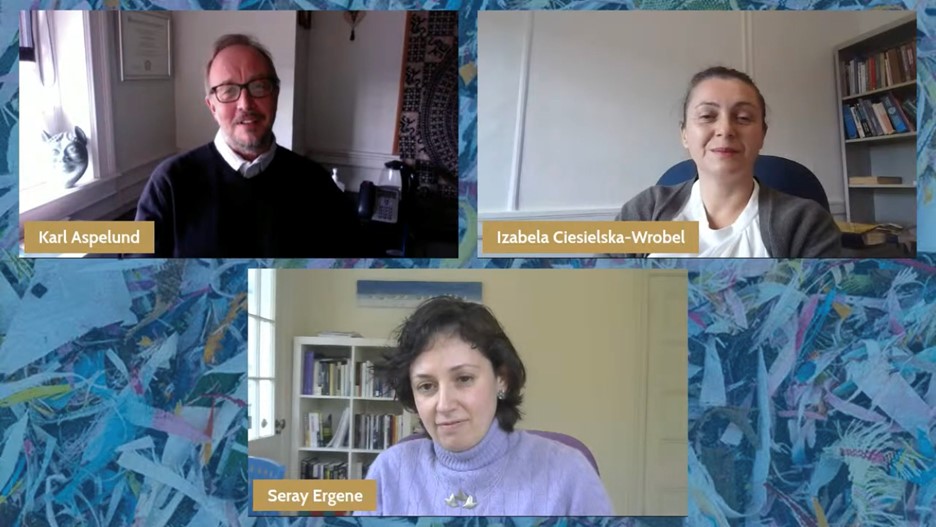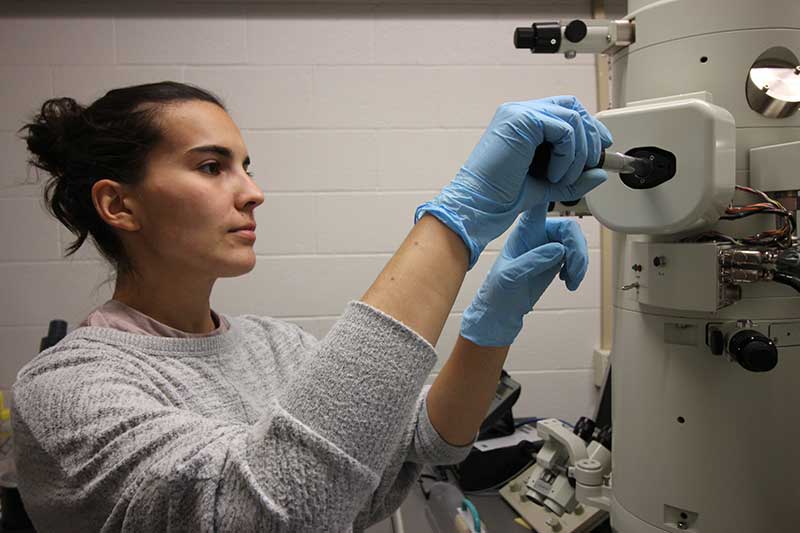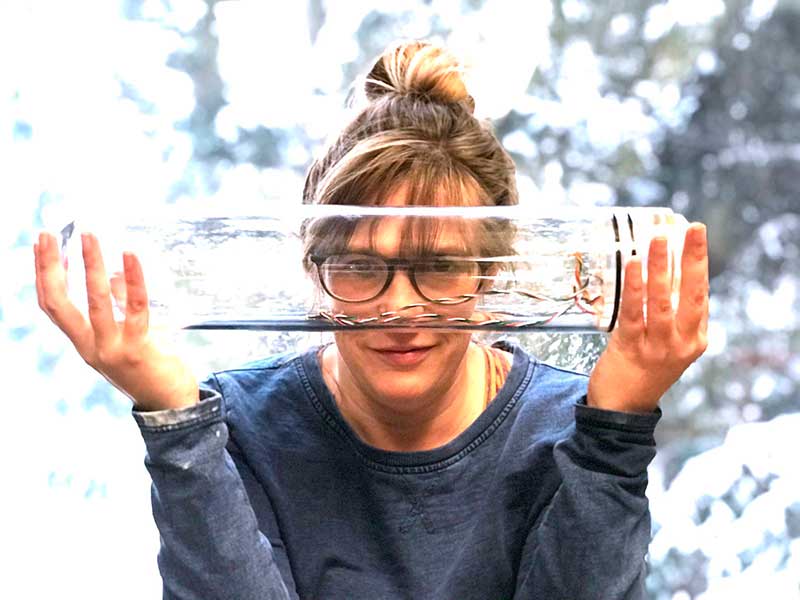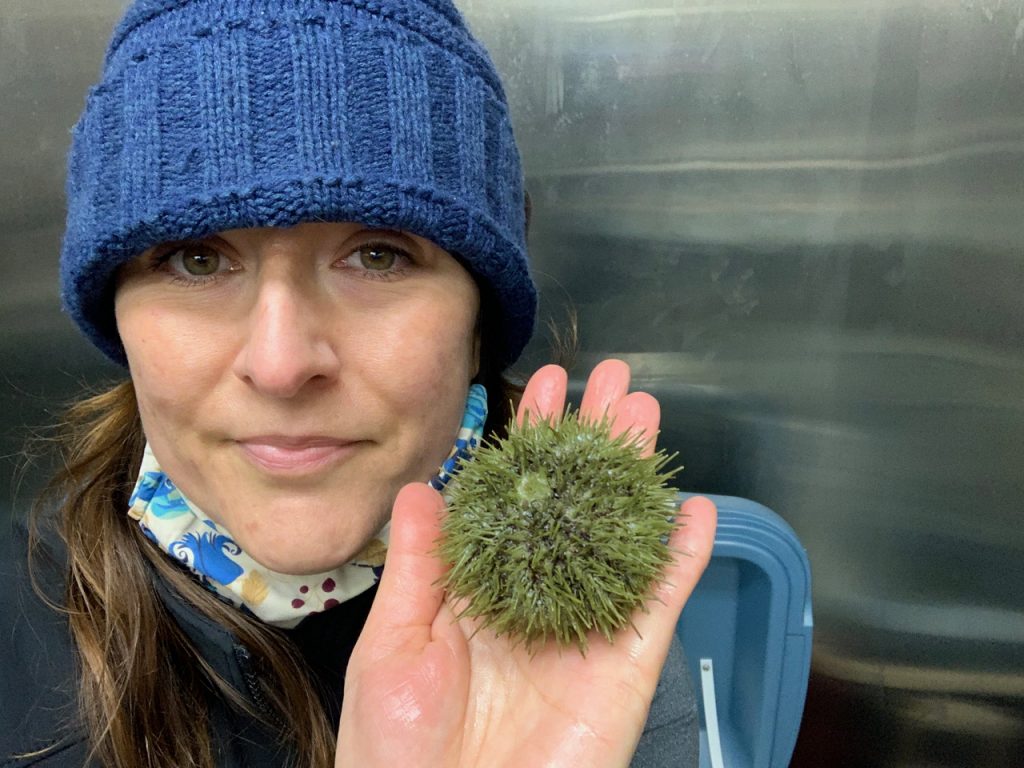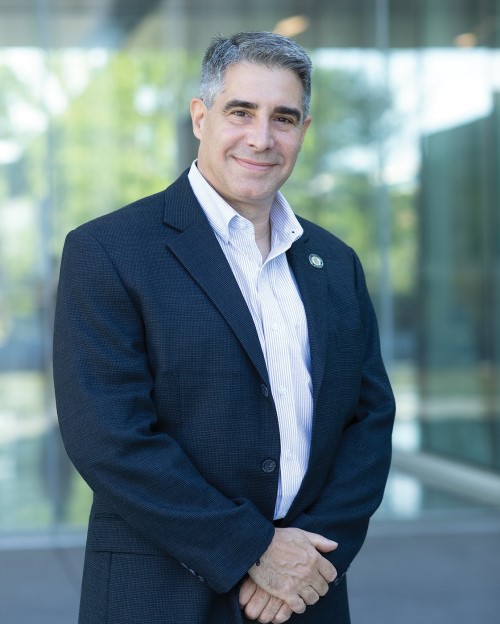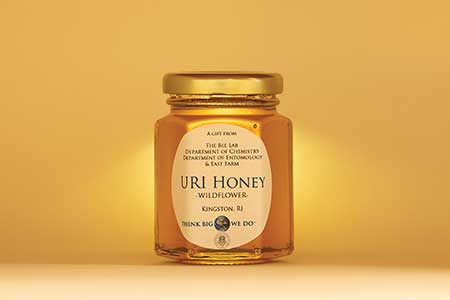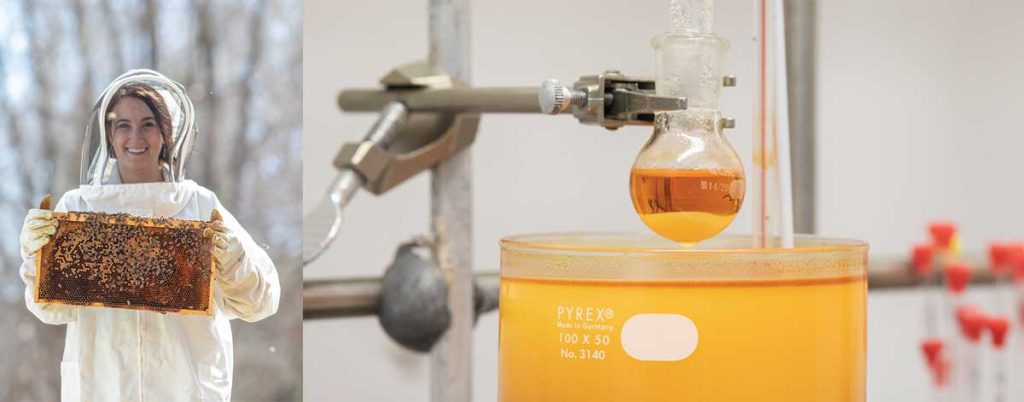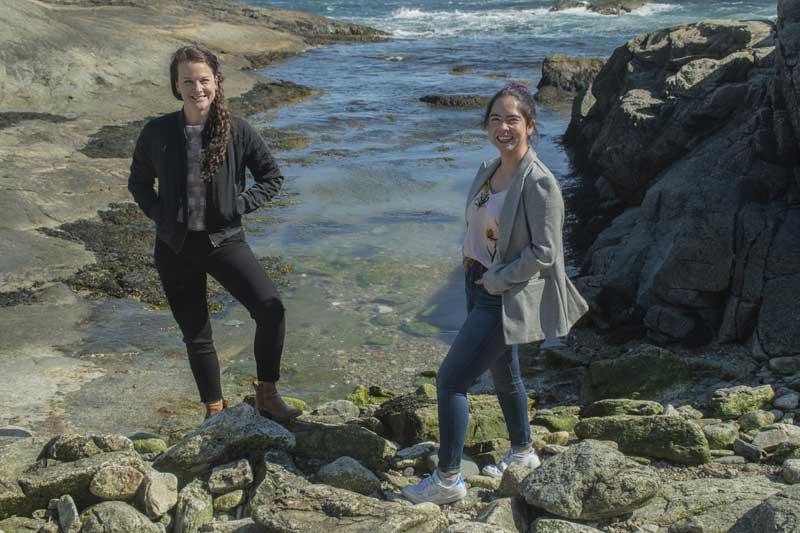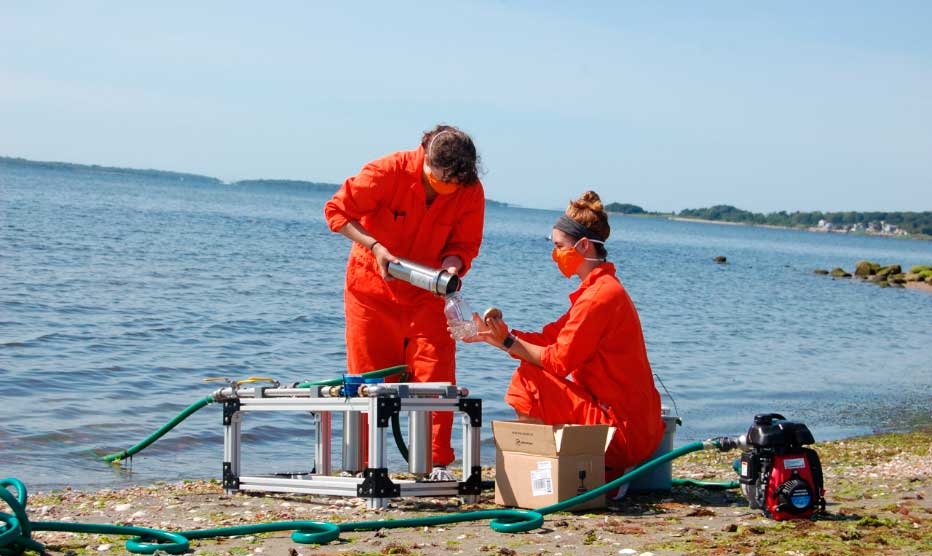Request for Proposals
Proposals are due at 4 p.m. April 14, 2023. View pdf version of RFP
URI Plastics is accepting applications for the 2023-2024 Plastics Seed Grants Program via the Division of Research & Economic Development. The URI Plastics supports initiatives that apply research and creative activities to solving or better understanding plastic pollution problems and issues at local, state and regional levels.
2023 URI Plastics Seed Grants
Available funding ranges from $10,000 to $40,000 of direct support and we anticipate supporting 3-5 proposals. Modification in the number of and/or funding for individual proposals may be made based on final program budget allocations. Competitive proposals will support collaborative teams for research and scholarly activities and enable innovative partnerships to support the pursuit of external funding beyond the scope of this project. The only restrictions are that proposals must meet the guidelines set forth in this invitation.
URI Plastics is hosting information sessions and office hours. Attendance is optional. These sessions and hours are opportunities to discuss ideas, find possible connections and address any questions for developing and submitting proposals.
Info Sessions (1 hour zoom session)
Please refer to plastics website (https://plastics.uri.edu/about/funding/) for more info and links for these sessions.
- March 10, 2-3PM
- March 28, 12-1PM
Office Hours (zoom drop in):
Please refer to plastics website (https://plastics.uri.edu/about/funding/) for more info and links for these sessions.
- April 3, 2-3PM (zoom)
- April 4, 2-3PM (zoom)
ELIGIBILITY & REQUIREMENTS
All full-time URI faculty from any discipline with any type of continuing appointment (tenured and tenure-track faculty, research faculty, clinical faculty, research scientists) may serve as investigators for these grants. Participants must come from at least two colleges to demonstrate interdisciplinary collaboration. Faculty are limited to serving as Principal Investigator (PI) on only one proposal. Faculty may serve as a co-investigator on more than one proposal. Anyone who is separating from the University in the year immediately following the award is not eligible to participate in this program.
Proposal must demonstrate research translation – how it may be applied to solving or better understanding problems and issues at local, state or regional scales. To this end, collaboration at varying levels with external stakeholders is strongly encouraged for successful awards. Acceptable stakeholders include non-profits, government agencies, community organizations and industry.
Proposals must include an education component, which can involve undergraduate or graduate students in research, or it can incorporate learning in the classroom. URI Plastics Seed Grant program funds cannot be used to support projects in fulfillment of advanced degrees, time needed for preparation of extramural grants, or to pay for reprints of published work. Funds may be used to support projects for instructional development only to the extent that the project is essential to the preparation of one or more proposals for extramural funding.
PROPOSAL PREPARATION
Applicants must submit a clear and concise proposal that is understandable to members of the review committee who may not be familiar with the applicant’s discipline or area of specialization. The review committee will include URI and external members. Proposals are to be single-spaced, with minimum 12-point type and 1-inch margins
I. PROJECT ABSTRACT (150 words or less)
II. PROJECT NARRATIVE (maximum of 3 pages)
Introduction: Provide a succinct statement of the objectives of the proposed work and background information that places the proposed project in a broader scholarly context. The proposal should be understandable to peers who may not have expertise in the discipline.
Significance and innovation: Demonstrate how research may be applied to solving or better understanding problems and issues at local, state or regional scales. Discuss the importance of the research or scholarly activities and the short- and long-term benefits to the faculty member’s research program and to society.
Work plan: Describe what you plan to do and how you will complete the work. The work plan should describe and justify experiments, fieldwork and so forth. Include a brief timetable that indicates when each task will be performed during the grant period, thus illustrating achievability of the project. Describe how you will integrate learning experiences in the field, lab or classroom for students (undergraduate and/or graduate).
Plan for submission of extramural proposals: Discuss what extramural funding programs will be pursued as a result of completing the proposed work.
III. LITERATURE CITED SECTION OR BIBLIOGRAPHY (as appropriate)
IV. BIOSKETCHES/CVs (maximum of 2 pages)
A biosketch, curriculum vitae or resume should be included for all key personnel. These should include publications relevant to the proposed project. For those familiar with SciENcv, this format is welcome as well (https://www.ncbi.nlm.nih.gov/sciencv/)
V. BUDGET
A budget must be submitted using the form provided. The budget form is available on the application website: https://uri.infoready4.com/CompetitionSpace/
Personnel Costs Allowed:
- Faculty Summer Salary is allowable only for faculty on nine-month appointments to work on the proposed project. Salary may not be used for time spent writing extramural grant proposals. The maximum amount of summer salary is $4,000 for one applicant and $8,000 for two or more principal investigator’s/co-principal investigators. Note that total summer re-contracting from all funding sources may not exceed 27.8% of the faculty’s academic year salary
- Graduate Student and Undergraduate Support for graduate research assistants and undergraduate student hourly help during the academic year or summer. Support must be calculated using current rates, which are available at: https://web.uri.edu/research-admin/files/Student-wages-and-tuition-rates-2019-2025.pdf
- Salary for other personnel such as postdocs, co-principal investigators or engaged partners may be included. Co-principal investigators must be named on the Cover Sheet and the itemized budget.
To calculate non-faculty personnel salaries (i.e. Graduate Students, Undergraduate Students, Other) multiply the number of hours by the appropriate hourly rate. FICA for graduate and/or undergraduate student(s) summer salary is calculated by multiplying the total number of hours by 0.0765. FICA does not need to be included with faculty salary.
Equipment – Equipment (>$5000 unit cost) that is not normally available through department budgets or other University sources may be purchased using grant funds. Cost-sharing is encouraged, but evidence of a cost-sharing plan must be included with the proposal (e.g., letter of support from the principal investigator’s Dean). A quote for each equipment request must be included with the Budget Justification.
Supplies – For artistic, laboratory, and fieldwork, computer, media and telecommunications expenses, etc. may be requested. List each type of supply separately. Funds may not be used for purchase of routine expenses, e.g., office supplies, equipment repair, calibration, and/or maintenance, or for other purposes unless they specifically relate to the proposed project.
Travel – Funds to defray the cost of travel to study sites and/or to collect data may be requested. Provide the actual fare if traveling by public carrier (air, rail, bus, etc.). If traveling by a privately owned vehicle, use the authorized standard per-mile rate. For each trip identify the destination(s) and indicate the number of days per destination per trip. The most reasonable, economical lodging available in close proximity to the work location should be identified. The university’s travel policy is available at http://www.uri.edu/controller/policies.html. Calculate expenses on a per-trip basis and enter totals for Mileage, Out-of-State Travel, Other Travel, and Foreign Travel in the spaces provided.
Other Costs – Funds not covered by the above categories, such as lab rental fees, may also be included, and must be clearly justified (see above).
VI. BUDGET JUSTIFICATION (maximum of 2 pages)
Applicants must submit a separate budget justification that indicates how each item contributes to the intended goals of the grant program. It is essential that the applicant make a direct connection between the requested budget items and the aims of the research. Conventions of particular disciplines that require a specific expenditure should be clearly explained and justified. Full amounts requested may not be awarded subject to availability of funds.
REQUIREMENTS AND CONDITIONS
1. If use of the URI Plastics Seed funds result in the development of items eligible for patent or copyright, or the production of any books, etc., the University patent and copyright policy shall apply (see University Manual 10.40.10 through 10.44.10).
2. Publications that result from a URI Plastics Seed Grant must include an acknowledgement of this support, and a copy of the publications must be delivered to the Office of Research Development soon after publication.
3. All funds must be expended between July 1, 2023, and July 1, 2024.
4. Awardees are required to provide the Director of URI Plastics with a final report on activities supported by the grant no later than three months after the end of the grant. Failure to submit a report will result in the recipient being ineligible to apply for future funding from the URI Division of Research & Economic Development.
5. Awardees are also required to provide to the Director of Research Development one copy of each proposal submitted for extramural funding that resulted from the Seed grant. This should be submitted within a year of the end date of the Seed grant. Failure to submit at least one such proposal will result in the faculty or staff member being declared ineligible to apply for future funding from the URI Division of Research & Economic Development.
6. Awardees must attend a showcase event on the outcomes of funded seed projects that will be held at the end of the 12-month timeframe to engage with internal and external stakeholders. Participation is a condition of receiving an award. Funded research teams will receive support to provide effective presentations.
EVALUATION CRITERIA
Funds will be awarded through a competitive review process conducted by Division of Research & Economic Development leadership. Proposals will be evaluated according to the following criteria:
- Clarity of the description of the work proposed and evidence of the project’s achievability
- Potential for application in society (ie. to improve understanding, address an issue, utilized by or connected to local to regional resources)
- Prospect of securing external funding beyond the scope of this project.
- Strength of the collaborating research team and partners.
- Proposal presentation (adherence to formatting requirements).
APPLICATION SUBMISSION
Applications are to be submitted via the InfoReady system at:
Check the FAQ for clarifications about the solicitation. Questions about the program may be directed to Kathleen Shannon at kshannon11@uri.edu.
Questions about the InfoReady system may be directed to Dr. Karen Markin, director of research development, at kmarkin@uri.edu or 874-5971.


